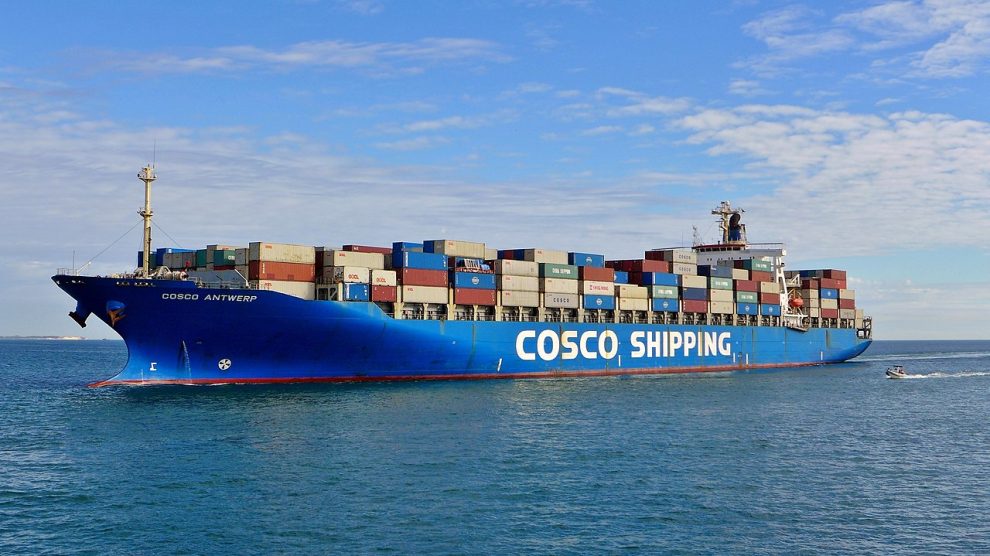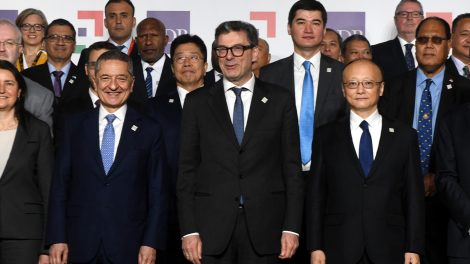Hamburg seaport: Germany squabbles over China’s aims. Berlin will soon have to decide whether to allow COSCO, a Chinese shipping company, to purchase a significant stake in a terminal – in the crucial port of Hamburg.
- The bid concerns 35% of Container Terminal Tollerort (CTT), owned by Hamburger Hafen und Logistik AG (HHLA).
- The issue has become a point of contention within the German cabinet: while all the relevant ministers oppose the deal, Chancellor Olaf Scholz appears ready to override them.
- Governing leaders have signalled the deal is likely to go ahead by the end of October.
Sweetening the deal. As China Table reports, a new compromise, whereby COSCO would take a 24.9% stake in the terminal instead of 35%, is being discussed. “[Chancellor] Scholz can say he addressed concerns of ministers, intel agencies and the [European] Commission,” noted GMF expert Noah Barkin; “but no matter how you slice it, this looks like a gift to [Chinese President] Xi.”
It would still be a raw deal. “Ports are critical infrastructure: it would be unwise to allow an increasingly hostile authoritarian power – which regularly uses economic dependencies for political coercion – partial or full control of any element of its critical infrastructure,” explained Thorsten Benner, director of the Global Public Policy Institute.
- It would be an error to believe this does not concern Europe in its entirety, as European publicly-owned ports are being infiltrated – and their internal competition exploited – by a Chinese state-controlled company.
- There needs to be a major re-think of European competition rules, argues Mr Benner. It has become vital for the EU to also look at unfair competition challenges presented by state-owned companies, like COSCO, of countries outside the single market.
The Italian connection. Berlin’s decision might impact Rome, too, as the port of Hamburg owns a controlling stake (50.1%) of the Logistic Intermodal Platform within the seaport of Trieste, another crucial European hub.
- This agreement entails the construction and 30-year management lease. Back in September 2020, when it was signed, it was hailed as the end of the Chinese bid for Trieste through the Belt and Road Initiative.
The expert’s take. The acquisition “does not seem to have direct repercussions on Trieste,” Francesca Ghiretti, an analyst at the Merics research centre, told our sister site Formiche.net. Still, she remarked, the deal does raise some questions regarding competition: “COSCO, which receives state funds from China, does not compete at the same level as other companies in the sector. Moreover, its market dominance is a potential geopolitical tool for Beijing.”
- Merics predicts the deal will go ahead, albeit with a “slightly less advantageous deal than the initial 35%,” she concluded.
The watchful eyes of Rome (and Washington). General Giuseppe Arbore, head of the Operations Department at the General Command of Italy’s Finance Police, explained that the Chinese strategy aims at controlling – or at least establishing a significant presence in – the ports where goods arrive.
- Both the Italian government and Parliament’s Intelligence Committee have highlighted China’s aims over the Italian seaport infrastructure.
- The United States share these concerns. Robert Needham, the US’ Consul-General in Milan, once spoke of investment opportunities for American companies on the one hand and the “potential risks” of the BRI on the other. “As an ally within NATO, with troops stationed at Italian bases and with shared security and weapons systems, we hope that Italy will carefully assess the potential risks to the economy and security when seeking partners for projects to develop its ports.”




